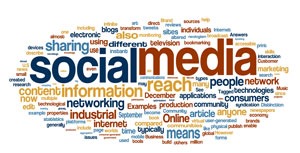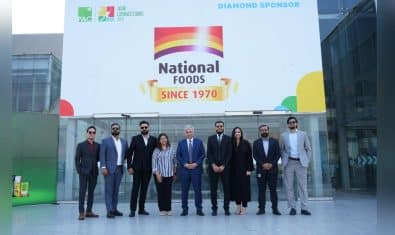
I recently read about a prominent Pakistani brand that was super proud of the fact that it had tons of fans on its Facebook page. It even touted this across various media. This got me thinking: are we, as marketers in Pakistan ,really utilising social media to its fullest extent? While having loads of ‘Likes’ on Facebook is great for one’s ego, the true impact of social media is measured in engagement. When I talk about engagement, I mean actually conversing with your audiences. Bear in mind, I’m not denigrating the importance of social media here – or the importance of connecting with wide audiences (i.e. having lots of fans or ‘Likes’). As with all marketers, I too am an avid enthusiast of the efficacy of social media when used right.
And there’s the rub. See, the wonderful thing about social media is that unlike many (in fact, most) other marketing media, it allows for a two-way communication, dialogues. The best brand social media campaigns are those which start a conversation with the brand’s target audiences. And this, ladies and gents, is not about how many people follow you on Twitter, but about how many of those followers you, as a brand, are actually actively engaging with, how many you’re actually talking to.
So let’s take a step back and examine the landscape for a moment. There currently exists a rich and diverse ecology of social media sites, which vary in terms of their scope and functionality. Some sites are for the general masses, like Friendster, Hi5, and – of course – Facebook. Other sites, like LinkedIn, are more focused professional networks; in fact, Facebook started out as a niche private network for Harvard University students. Media sharing sites, such as MySpace, YouTube, and Flickr, concentrate on shared videos and photos. And after a slow start in the late 1990s, weblogs (blogs) have become very popular, because they are easy to create and to maintain. Their authors range from everyday people to professional writers and celebrities. Today, the resulting ‘blogosphere’ of more than 100 million blogs and their interconnections has become an important source of public opinion.
With this rise in social media, it appears that corporate communication has been democratised. The power has been taken from those in marketing and public relations by the individuals and communities that create, share, and consume blogs, tweets, Facebook entries, movies, pictures, and so forth. Communication about brands happens, with or without permission of the brands in question. It is now up to brands to decide if they want to get serious about social media and participate in this communication, or continue to ignore it. As someone once said to me, “The question is not whether or not your brand is being talked about online, it’s if you want to join the conversation.”
But where many brands, like the one I mentioned in the beginning, are missing a trick is the ability of social media to connect us to wide networks of like-minded people; people who share our values, our worldviews; people who share our Causes (I’m sure most of you reading this article have at some point or another even used the Causes app on Facebook to promote some issue that you feel strongly about). We at Wateen recently used our Facebook page to help drive the ‘Wateen Scouts’ campaign. The idea was simple: to bring together Pakistan’s youth on a common platform, and to enable them to help bring about the changes they want to see in the country. We used our Facebook page to not only help recruit and support the offline campaign, but to also share the eventual ideas and outcomes with others who shared the young finalists’ outlooks.
And this, folks, is where the true power of social media lies. Digital is merely a medium – a medium that can used (or abused) any which way. But when used intelligently, when used with a social conscience, it is also a tool that can bring together people from disparate, varied backgrounds to a single, common shared belief. I recently heard someone say that one person’s efforts are but a drop in the ocean, but when a million drops come together, they become the ocean.
So next time you hear some brand manager bragging about his or her X thousand ‘Likes’ on Facebook, ask them how many of those ‘Likes’ are actually engaging with thier brand, communicating with the brand, conducting a dialogue and conversation with the brand. And more importantly, what steps for concrete social change has the brand taken with those many thousand ‘Likes’. If they’re on the right track, the answer will be clear enough.
Sohaib Sheikh is the head of marketing for Wateen Telecom





















Totally agreed with the last paragraph!
Hmmm…Agree…
HAPPY TO SEE A Good one POST by GUEST.. by this one we have to see every aspect of any thing on social media
Social Media is not game of counting…… Make it social
achi publiciity ki he wateen ki :P
but on a serious note very well conceived and thought provoking article regarding our social media trend
typical business mind thinking :)
In social media its not important everyone who likes your page is user of your brand
you can use your social media page, group for fast communication, Announcement, promotions, don’t make social media as business place its social every one have rights to like unlike celebrating X thousand members, its just like wateen fooling us about there services in ads actually its not that great as they advertise :)
Please be informed that so far Wateen has rebooted twice after “blue screen of death”. The third or terminal reboot is on the horizon.
Please take your own advice make an effort of engaging people in something of interest. On your page, several posts have NOTHING to do with Pakistan at all. How can you call this filler an engagement?
And feel free to inform me about the social change you have brought about in society. I will be surprised if it is bigger than a speck of dirt. Corporate social responsibility, social change etc are the gimmicks used by companies to hide their ineptitude.
This post is nothing but a miserable attempt of a dying company to horn its presence. A guest author from Wateen pops up every now and then. The other day, someone was talking about smart grids IN a country where there is NO electricity to start with. Oh, and dont tell me you were being futuristic. If Pakistan has to fulfil its current energy requirements, we need around 10 years. By that time, demand will be higher than that it stands today. I would have appreciated had he announced Wateen’s decision to run its infrastructure on solar energy. But alas! you do not have the money to buy new CPEs for prospective customers let alone solar panels.